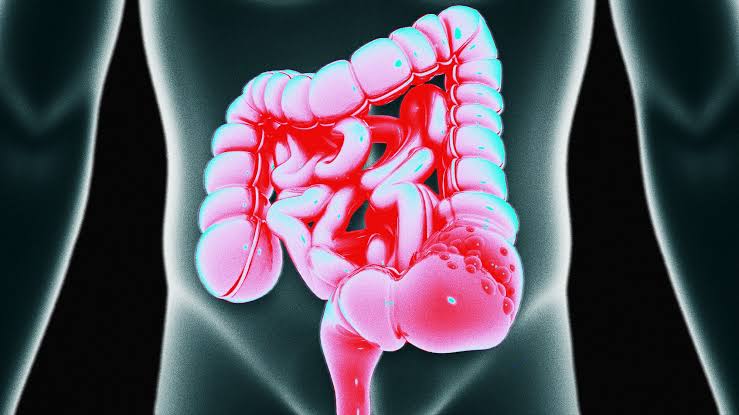This content is for informational and educational purposes only. Always consult a qualified healthcare provider.
Last Updated on February 21, 2025 by Grace Oluchi
Understanding Colorectal Cancer
Colorectal cancer is a disease where cells in the colon or rectum grow uncontrollably. The colon, or large intestine, and the rectum, which connects the colon to the anus, are vital parts of the digestive system. This cancer is the third most common worldwide and the second leading cause of cancer-related deaths. Early detection significantly improves survival rates. Advancements in AI-driven diagnostics and precision medicine are revolutionizing detection and treatment.
🔗 Related Topics: Breast Cancer, Pancreatic Cancer, Cancer Prevention Strategies
📋 Table of Contents
Key Takeaways
✔ Colorectal cancer is a serious but treatable disease—early detection improves survival rates.
✔ Symptoms may not appear immediately, making regular screenings crucial.
✔ Lifestyle factors like diet and exercise influence risk levels.
✔ New treatments, such as AI-powered diagnostics and precision medicine, are improving survival rates.
✔ Preventative screenings and early lifestyle changes can lower risk significantly.
Early Symptoms of Colorectal Cancer Before Diagnosis
Many people with colorectal cancer do not experience noticeable symptoms initially. However, early warning signs include:
✔ Persistent changes in bowel habits (diarrhea, constipation, or narrowing of stools).
✔ Rectal bleeding or blood in the stool.
✔ Unexplained abdominal discomfort (pain, cramps, or bloating).
✔ A sensation that the bowel doesn’t empty completely.
✔ Weakness, fatigue, or unexplained weight loss.
✔ Iron-deficiency anemia without a known cause.
🩺 Expert Insight: Dr. James Carter, an oncologist, explains: “The challenge with colorectal cancer is that it often develops silently. This is why routine screenings and early lifestyle modifications are critical for prevention.”
🔗 Learn More: Early Signs of Cancer
Colorectal Cancer Survival Rates by Age
Survival rates depend on the stage at diagnosis, age, and overall health. According to the American Cancer Society (ACS):
| Age Group | 5-Year Survival Rate (Localized) | 5-Year Survival Rate (Distant) |
|---|---|---|
| Under 50 | 92% | 22% |
| 50-64 | 89% | 19% |
| 65+ | 85% | 15% |
🔬 Advancements in AI & Precision Medicine
AI-powered imaging and genetic testing help identify colorectal cancer earlier, leading to personalized treatment plans based on genetic markers.
👨⚕️ Dr. Susan Reynolds, AI & Cancer Researcher: “AI-driven diagnostics can detect polyps and early-stage tumors with higher accuracy than traditional screenings, leading to improved early interventions.”
🔗 Read More: AI in Cancer Research
Foods That Reduce Colorectal Cancer Risk
Your diet plays a key role in reducing colorectal cancer risk. The following foods are beneficial:
✔ High-fiber foods (whole grains, legumes, leafy greens).
✔ Omega-3-rich fish (salmon, sardines).
✔ Antioxidant-packed fruits (berries, citrus fruits).
✔ Fermented foods (yogurt, kimchi, sauerkraut) to support gut health.
✔ Nuts & seeds (almonds, flaxseeds) rich in healthy fats.
📌 Avoid: Processed meats, excessive red meat, and added sugars.
🧬 Research Highlight: A 2024 study from Harvard Medical School found that a high-fiber diet reduced colorectal cancer risk by 33% in individuals over 50.
🔗 Read More: Nutrition & Cancer Prevention
Can Colorectal Cancer Kill You?
Yes. Colorectal cancer is one of the leading causes of cancer-related deaths. However, early detection and modern treatments improve survival rates significantly.
🛑 Critical Factors That Lower Survival Rates:
- Delayed detection—cancer is often caught in later stages.
- Genetic predisposition—family history increases risk.
- Poor diet, smoking, and lack of exercise.
🔬 Emerging Research: Liquid biopsies and genetic sequencing are being developed to detect cancer before symptoms appear, potentially increasing survival rates dramatically.
Interactive: Colorectal Cancer Risk Assessment Tool 🏥
Colorectal Cancer Risk Assessment
Want to assess your personal risk level? Try our quick Colorectal Cancer Risk Calculator.
🔲 Age: Under 40 | 40-50 | 50-60 | 60+
🔲 Family history of colorectal cancer? Yes | No
🔲 Diet includes processed meats frequently? Yes | No
🔲 Do you exercise regularly? Yes | No
🔲 Have you had a colonoscopy in the last 5 years? Yes | No
🎯 Get Your Risk Score – Personalized recommendations based on your answers.
Final Takeaway: Prevention Is Key
🚀 What You Can Do Today:
✔ Schedule a screening if you’re over 45 (or younger with risk factors).
✔ Increase fiber intake & eat more gut-friendly foods.
✔ Stay physically active and maintain a healthy weight.
✔ Avoid smoking and excessive alcohol consumption.
✔ Monitor symptoms and seek medical advice if concerned.
🔗 Further Reading: Latest Colorectal Cancer Research

